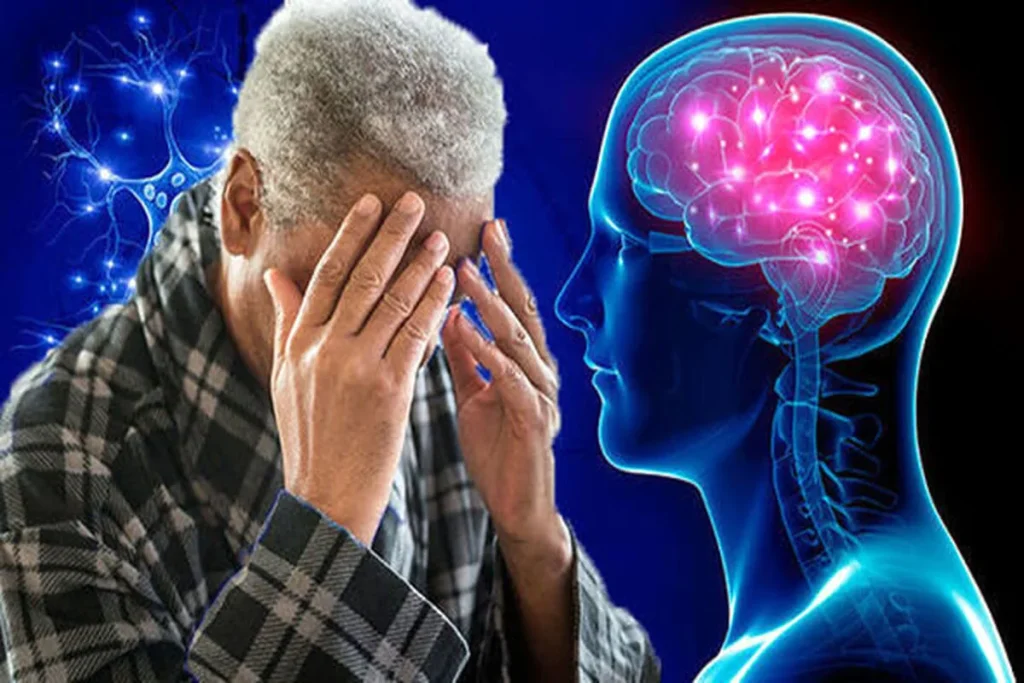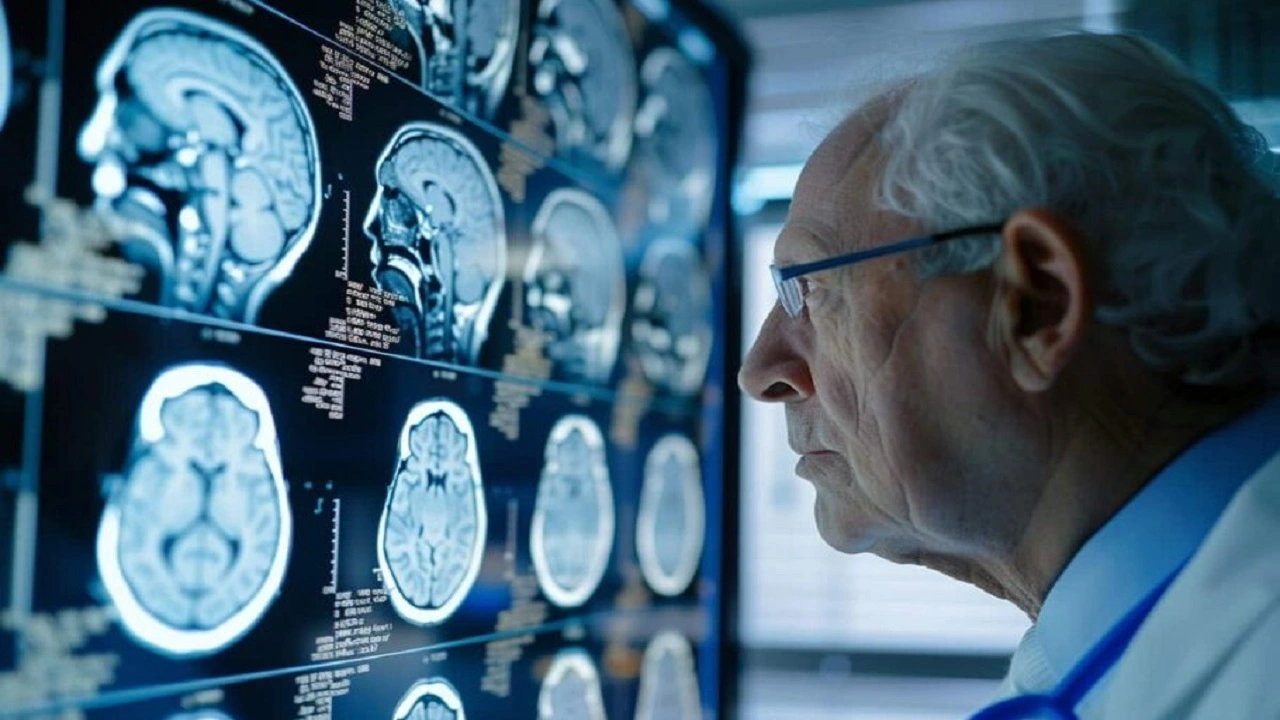
Early Diagnosis of Dementia + Warning Signs
Early diagnosis of dementia can have a positive impact on the lives of the person with dementia and their family. Because early diagnosis allows the person and their family to plan for the future and make important decisions about healthcare and treatment costs for this disease.
Dementia is a general term to describe the gradual decline in cognitive and mental abilities that can disrupt a person’s daily life. This disease is usually accompanied by memory loss, problems with thinking and language, and a decrease in social skills.
Other symptoms of dementia include problems with visual and spatial abilities, problems with reasoning and problem solving, depression, anxiety, and inappropriate behaviors. The causes of dementia can include things like Alzheimer’s disease, stroke, vascular diseases, and other neurological disorders.
Note that this disease is different from normal forgetfulness and its consequences will be more widespread and sometimes more dangerous. In this article from the Human Health Mag website, we will talk more about the disease, its symptoms, and the factors that cause it. We will also explain how, with timely diagnosis, people with dementia can live meaningful and productive years and enjoy the precious moments of their lives.
Early Signs and Symptoms of Alzheimer’s & Dementia to Watch Out for
Early signs of dementia in men and women are difficult to predict, especially since they are often hidden. A new study has found that there is a specific sign of dementia that can appear 16 years before a diagnosis. The study, published in May in the medical journal PAIN, looked at people ages 40 to 64 on nine occasions between 1991 and 2019. During that time, 567 of the respondents had been diagnosed with dementia.
The scientists even found that people with the disease may experience increased levels of pain up to 16 years before early diagnosis of dementia. They found that participants reported increased pain up to 16 years before their diagnosis. In a statement, the National Institute on Aging said that researchers have found that brain changes associated with dementia begin decades before diagnosis. It is unlikely that pain is a risk factor for the disease.
Instead, they hypothesize that chronic pain may be an early sign associated with dementia. Since research shows that brain changes can occur up to 34 years before a diagnosis, these changes may lead to an early increase in pain. The scientists noted that if a person is experiencing more severe pain, or it is preventing them from doing everyday tasks, they should look for other early signs of dementia.
These signs can include memory problems, poor concentration, a decrease in the ability to perform everyday tasks and increased confusion. Other early signs of dementia include difficulty finding the right words, mood swings, apathy, repetition and struggling to adapt, according to the report. If you have more pain, you can still reduce your risk of dementia with early detection of dementia.

Why Early Diagnosis of Dementia is So Important?
Why spotting the early signs of dementia is so important? In answer to this question, we should say that early detection of dementia can certainly help prevent complications, better manage the disease, and improve a person’s quality of life. With early detection, timely treatments and interventions can be used that may slow the progression of the disease. Families can be better prepared and provide the necessary support. Supporting elderly with depression can help reduce stress and anxiety.
Early detection of Alzheimer’s gives patients and their families the opportunity to plan for the future and enjoy their lives. There are several resources to help dementia patients that can help improve their quality of life and better manage the disease. For example, mental health counseling can help patients and their families manage difficult emotions and behaviors and plan for the future.
Support groups can also provide a space for patients to share their experiences and receive emotional and psychological support. Educational programs will provide patients and their loved ones with the necessary information about dementia, how to manage it, and ways to prevent it.
Risk Factors Identified for Early Onset of Dementia
Experts have identified several health and lifestyle factors that contribute to the development of a rare type of dementia in people under 50. Around 370,000 people worldwide are diagnosed with dementia at a younger age than usual each year. Experts from the Universities of Exeter and Maastricht in the Netherlands say that treating certain conditions and following certain health and lifestyle tips can help prevent, identify and treat this type of neurodegeneration.
The experts found that alcohol consumption, vitamin D deficiency, stroke, hearing impairment, heart disease and high levels of C-reactive protein, which indicates inflammation in the body, are among the factors that contribute to early onset of dementia. Social isolation of seniors, depression, as well as poor education and socioeconomic status were other factors mentioned in these studies.
“In addition to physical factors, mental health, such as avoiding stress and constant nervous tension, loneliness and depression, also play an important role in preventing this neurological disorder,” says Sebastian Kohler, one of the experts. “It is often thought that the cause of early-onset dementia is genetic, but in many people the root cause is unknown,” says Stevie Hendrix, a postdoctoral researcher in psychiatry and neuropsychology at Maastricht University. He adds that most people with the condition are still working and also have children and busy lives.
To eliminate some of these risky lifestyle habits, be curious. Learn new things, make time for a hobby, hang out with friends and family, and participate in groups to stay socially active. Exercise regularly. Stay active, any amount of exercise is effective, from walking to strength training, find an exercise that suits you.
Early diagnosis of dementia can be difficult because it doesn’t initially show up as a common symptom of memory loss. Instead, watch for signs such as problems with balance, movement, and coordination.

Is There an Early Diagnosis Test for Dementia?
Certainly, timely referral to a doctor for diagnosis and management of dementia can help in early detection of dementia. The doctor can suggest appropriate treatment plans and interventions that may help to slow the progression of the disease and improving the lifestyle of elderly. Receiving the necessary resources and support, including psychological counseling and support groups for affected people and their families, are other benefits of early diagnosis of dementia and early referral to a specialist.
By reviewing a person’s medical history and performing a physical exam, the doctor will gather basic information about the person’s general health and possible signs of dementia. Brain imaging tests, such as MRIs and CT scans, are used to look for structural changes in the brain and identify possible causes of dementia.
Blood tests are also done to check for medical problems that may cause symptoms similar to dementia, such as hypothyroidism or vitamin deficiencies. Psychological evaluations are also done to look for changes in a person’s behavior, mood, and social abilities. Various tests are used to assess a person’s cognitive and mental skills. These tests include tests related to memory, attention, language, and problem-solving abilities.
Warning Signs of Dementia
Early symptoms of dementia may be mild and sometimes overlooked, but over time, they can become more severe. Here are some of the most common early symptoms that can be helpful in early diagnosis of dementia.
- Short-Term Memory Loss
One of the first and most common symptoms of dementia is problems with short-term memory. People may forget recent conversations, lose items like keys or glasses, and even be unable to remember a topic even after being reminded of it several times. These forgetfulness symptoms usually start gradually and get worse over time. For example, a person may not remember where they parked their car or forget important appointments. In more advanced stages, this disorder may lead to forgetting the names of close people or important life events.
- Decreased concentration and attention
Difficulty in concentration and attention is another early sign of dementia that can make it difficult to complete everyday tasks. People with dementia may become distracted while doing simple activities and fail to complete the task. For example, they may forget to turn off the stove or add the necessary ingredients when cooking. They may also lose the topic of conversation or be unable to respond appropriately to what others are saying. This impaired concentration can reduce productivity at work or in daily life, but doing exercises to increase concentration can be beneficial.
- Problems with judgment and decision-making
Dementia can affect a person’s ability to make decisions and make logical judgments. People with dementia may make poor decisions or have trouble managing finances and simple plans. For example, they may spend money on unnecessary items or forget important bills. In some cases, they may not understand everyday dangers, such as driving in inappropriate conditions. These problems can severely disrupt a person’s daily life and endanger their safety.

- Behavioral and emotional changes
Another sign of dementia is noticeable changes in behavior and mood. People may become depressed, anxious, or irritable, and exhibit behaviors that are unexpected for those around them. Some may become apathetic and no longer show interest in activities they used to enjoy. They may also become angry or anxious about small things. Behavioral changes usually have significant impacts on a person’s social and family relationships and can cause a lot of stress for those around them.
- Difficulty with language and expression
Difficulties with language and expression are a common symptom of dementia, often evident in everyday conversations. People may have trouble finding the right words or use the wrong words. For example, they may use the word “water” instead of “tea” or forget the names of simple objects. This language impairment can cause confusion and frustration and interfere with social relationships and daily communication.
- Getting lost in familiar environments
Losing the ability to navigate and recognize familiar environments is another early symptom of dementia. A person may get lost in places they have been going to for years or forget the way back home. In some cases, they may even become confused in closed environments, such as their own home, and be unable to recognize different rooms. This confusion can make a person feel fearful and anxious and increase the need for help from others.
- Loss of interest in activities
One of the most noticeable changes in people with dementia is a loss of interest in activities that they once enjoyed. They may no longer be interested in hobbies such as reading, exercising, or meeting up with friends, preferring to spend more time alone. This loss of interest can be due to depression caused by the illness or an inability to engage in activities due to cognitive problems. Reduced social participation can also accelerate the progression of the disease.
Early Diagnosis of Dementia: Difference Between Normal Amnesia and Dementia
The difference between normal amnesia and dementia is the severity and type of memory and cognitive problems. In normal amnesia, forgetting people’s names or where things are placed is normal from time to time and is usually remembered with re-examination.

In normal amnesia, long-term memory is usually healthy and people usually remember important past events well. Natural amnesia usually does not have a major impact on the ability to perform everyday tasks. Natural amnesia is part of the aging process, which is when some changes in memory and cognitive abilities occur naturally as we age. These changes are usually mild and transient.
In dementia, however, frequent and severe amnesia occurs, and forgetting important and repetitive information, such as the names of family members or familiar directions, is a symptom of this condition. People with dementia may have difficulty performing simple everyday tasks, such as cooking or paying bills.
Dementia is a serious disorder that causes a severe and persistent decline in cognitive function. These problems are severe enough to affect the person’s normal life. Personality and behavioral changes and sudden changes in mood, depression, anxiety, and inappropriate behaviors are other differences between these two conditions.
Concluding Remarks
Dementia is a brain disorder that gradually impairs and destroys cognitive functions. For this reason, it is vital to have adequate knowledge about this disease and have sufficient information about timely diagnosis and treatment. Early diagnosis of dementia and the use of appropriate medical services are key tools for controlling this disease.
In addition to the above, depression and other mental health problems can also be associated with an increased risk of dementia. Paying attention to these problems and controlling them is very effective in preventing and improving dementia. Providing emotional support, planning for the future, and information about medical and community-based resources can help the elderly caregiver and families in this regard.
Therefore, it should be emphasized that it is essential to see a specialist when observing the symptoms of this disease. Doctors provide the necessary information and education about the disease, how to manage it, and ways to prevent it. If you or a loved one is experiencing these symptoms, it is important to consult a specialist to receive an accurate diagnosis and appropriate treatment.

Frequently Asked Questions
Why We Need Early Diagnosis of Alzheimer’s Disease?
Early diagnosis of dementia can certainly help prevent complications, better manage the disease, and improve a person’s quality of life. With early detection, timely treatments and interventions can be used that may slow the progression of the disease and improve quality of life. Families can be better prepared and provide the necessary support. This can help reduce stress and anxiety.
At What Age Does Dementia Start?
For most people with Alzheimer’s — those with the late-onset form — symptoms first appear in their mid-60s or later. When the disease develops before age 65, it’s considered early-onset Alzheimer’s, which can start as early as age 30, although this is rare.
What Are the Causes of Dementia?
The causes of dementia are very diverse, but factors such as aging, family history, diabetes, high blood pressure, high cholesterol and heart diseases, unhealthy lifestyle: factors such as smoking, alcohol consumption, and physical inactivity can increase the risk of dementia.
